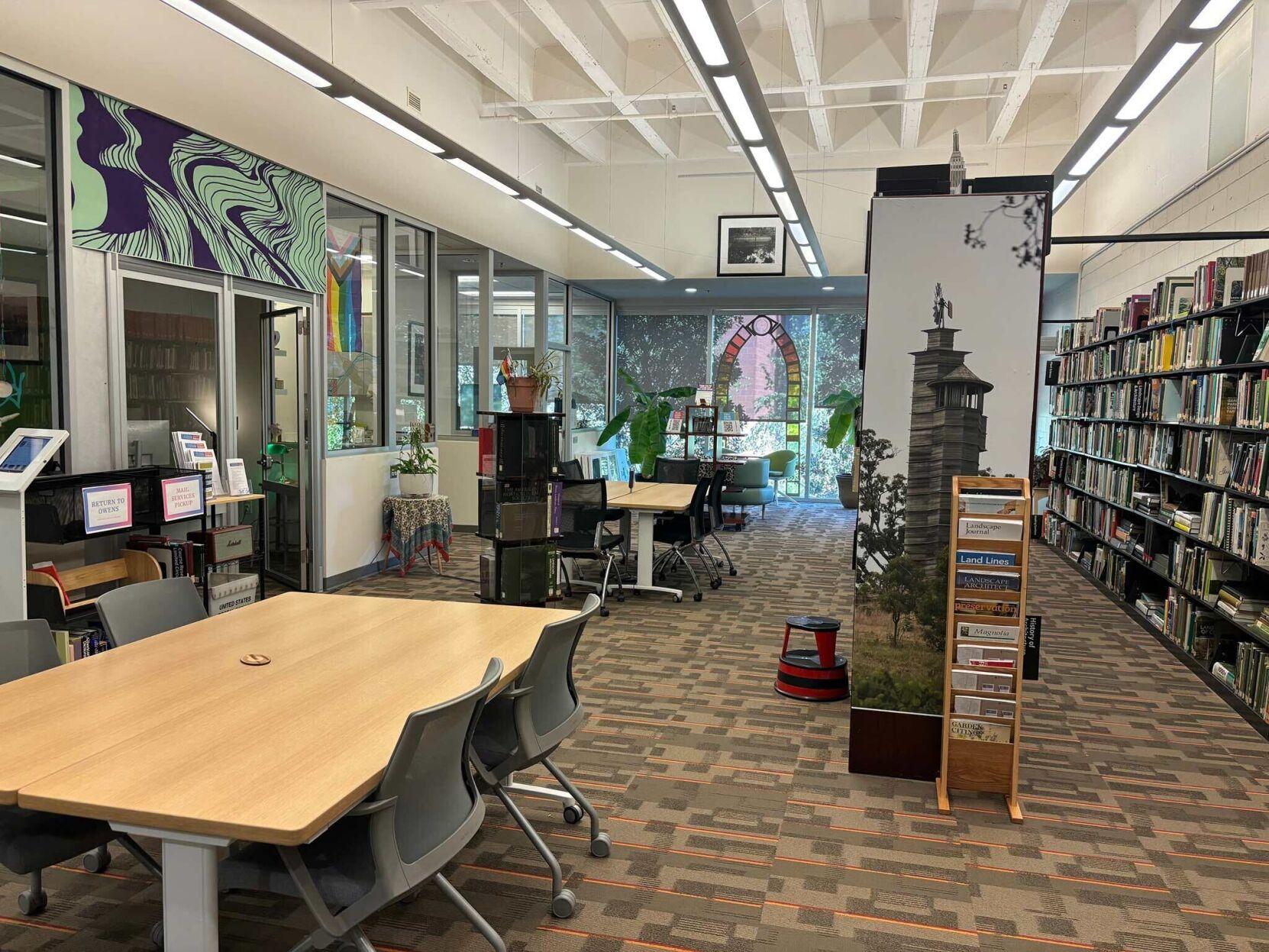UGA’s Well-Being Hubs: A getaway from bustling campus
The University of Georgia houses several areas for students and faculty throughout campus that prioritize health and well-being. The purpose of the well-being hubs is to be a space for meditation, prayer, gentle movement, teletherapy, creative expression, recuperation, privacy and more, according to its website.

Steven Rose is the marketing and communications manager with the University Health Center on campus and helps facilitate the well-being spaces.
Rose said that the hubs “support the whole person philosophy” and allow students and faculty to explore the many well-being resources on campus.
The placement of each well-being hub is “intentional,” and departments throughout campus are able to request to have a well-being hub put in place via a form online.
The first space to open on campus was the UHC hub in January 2022, and it is located on the third floor of the building. The space is designed for relaxation, privacy and comfort and invites UGA students and faculty to take a seat in a massage chair, practice soft movement yoga and find their inner artist with coloring books and pages. The hub is used for roughly 20 hours a week, according to the booking hours from users.
The Engagement, Leadership and Service Well-Being Hub is located on the first floor of the Tate Student Center and is an open space for both individual studying and group collaboration.
The partitioned cubicle spaces include mindfulness coloring pages and activities, noise-canceling headphones, meditation cards and under-the-desk pedal exercisers. The hub operates under a first-come, first-serve basis.
Aaron Dino is a senior health promotion major and uses the space to study. He said he noticed the pedal exercisers and thought they were “pretty cool.”
“Sometimes I’ll have a lot of energy or fidgeting, and it’s one way to channel it out and keep my body physically active while doing my work,” Dino said.
The well-being hub in University Testing Services houses a massage chair, snacks, puzzles and gentle movement equipment. It is available to the general community on a first come, first serve basis.
A well-being hub inside Milledge Hall offers a place to unwind between classes for undergraduate Peer Educators and must be booked in advance.
The Disability Resource Center’s well-being hub is located inside Clark Howell Hall and serves as a makerspace to share art supplies, skills and ideas to promote well-being, and can be converted into a conference room. Students and faculty must book the room in advance.
The Owens Resource Center in the Jackson Street Building is a place for technology, library research and well-being support at the College of Environment and Design. The comfortable seating and crafting supplies with plants and scenic views welcome all students and faculty, and the nook may be reserved via a booking calendar.
Baylen Whorton is a sophomore civil engineering major taking classes near the Owens Resource Center’s well-being hub.
“I didn’t discover this place until literally last week, and I just walked by and was like ‘I should go in there,’” Whorton said. “It’s all these books, and I’m into urban planning, so it’s crazy that the books are right here, it’s wild.”
Whorton finds the well-being hub “very relaxing and quiet” in comparison to the library, where there is “always stuff going on.”
Sanford Stadium’s Sensory Room welcomes all students, faculty, staff and visitors to catch a break from the excitement of a football game and recharge. Located behind section 127 of the south side of the stadium, the hub provides bean bag chairs, sensory tools and a bubble wall that supports visual tracking, relaxation and social interaction with its audience. The room is available when the stadium is open for events and monitored by an attendant during games, utilizing a check-in process and a first-come, first-serve basis.
The College of Pharmacy offers several different places to recharge, including Pharmacy South’s second floor student lounge and Kroger Learning Center, as well as Wilson Pharmacy room 418. Massage chairs, yoga mats, coloring books and more are available inside the college and can be reserved on a first-come, first-serve basis.
For Rose, speaking from a faculty and parent perspective, it is important that UGA focuses on resources behind student well-being and mental health because students are not able to perform well in the classroom if they are not feeling well.
“The university putting resources behind trying to make sure that students are taking care of themselves and their mental health means a lot,” Rose said.
Dino is thankful for the well-being spaces because they are “small things you don’t normally think about.”
“They just add a little bit of a weight off your shoulders in your everyday craziness and hectic life,” Dino said.
Whorton believes that college mental health has “taken a backseat.”
“I’m really glad that UGA is doing a lot to help people feel more relaxed and feel more at home because we’re all in this together,” Whorton said.
by Anna Izquierdo

